10 Common Blogging Mistakes Beginners Make & How to Avoid Them

Table of Contents
Introduction: Why Beginner Bloggers Fail (and How to Succeed)
💥 Most new bloggers quit within the first 6 months. But the reason is not a lack of talent. It is an avoidable mistake.
Every day, thousands of people start blogs with big dreams. But most give up too soon, not because they cannot write, but because they fall into avoidable blogging mistakes beginners make. These mistakes silently kill progress, demotivate creators, and sabotage long-term success.
Let us face it: the blogging journey can be shocking, but selecting a niche, planning content, optimizing SEO, promoting posts, and figuring out monetization methods. Miss even one key step, and your blog may never take off.
But here is the good news: with a clear roadmap and beginner-friendly blogging tips, you can skip the trial and error and build real momentum from day one. This guide unpacks the 10 most common blogging mistakes, why they happen, and how to fix them, fast.
You will also get powerful strategies, free tools, content planning templates, and plug-and-play blogging components to help you scale successfully. Whether you are starting a personal blog, niche site, or online business, this post is your blueprint for helping in blogging smarter, not harder.
✅ Mistake #1: Blogging Without a Clear Niche
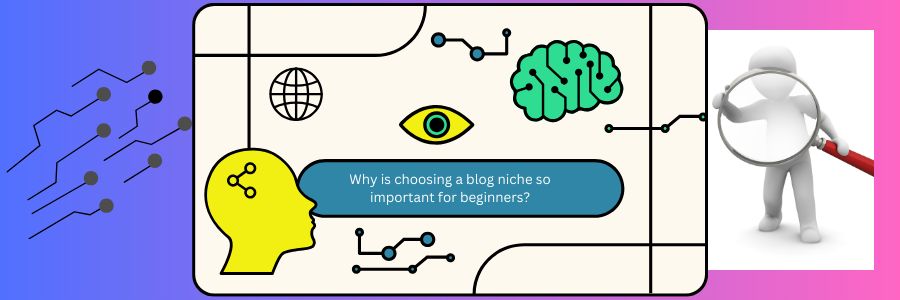
🚫 What is the Mistake?
Many beginners dive into blogging without choosing a specific topic or audience. They write about anything, personal stories, trending news, and random tips, hoping something will go viral.
But here is the truth: a blog without a niche is like a store without a signboard. No one knows what it is about, who it helps, or why they should stay.
Search engines also struggle to rank such blogs because they lack topical authority and relevance.
Voice Search Optimized Question:
“Why is choosing a blog niche so important for beginners?”
✅ The Solution: Find and Focus on a Profitable Niche
Choosing the right niche is not about being trendy. It is about solving a specific problem for the audience. Start by asking:
- What topics am I passionate about?
- What problems can I help people solve?
- Are people actively searching for this topic?
- Can I make money from this niche?
Once you find your niche, go deeper: explore sub-niches and micro-topics. This builds expertise and trust, which are key factors in SEO and monetization.
🧠 Pro Tip:
Use tools like Google Trends, Ubersuggest, and SEMrush to validate niche popularity and competition levels.
💰 Monetization Strategies for a Focused Niche
🔹 Affiliate Marketing – Promote niche-relevant products (e.g., Bluehost for blogging, Canva for design, ConvertKit for email marketing).
🔹 Digital Products – Create niche-specific eBooks, checklists, printables, or online courses.
🔹 Sponsored Posts – Partner with brands in your niche for reviews or features.
🔹 Ad Networks – Use platforms like Google AdSense or Ezoic. Focused content gets higher RPMs.
🔹 Email Marketing – Build a list in your niche and send personalized offers using ConvertKit or MailerLite.
🛠️ Helpful Tools to Choose and Validate Your Niche
Tool Purpose Free Plan Available?
Ubersuggest Keyword and niche research ✅ Yes
Google Trends See what’s trending in your area ✅ Yes
AnswerThePublic Discover common niche questions ✅ Limited
SEMrush Deep competition & keyword intel ✅ Limited
ChatGPT Brainstorm niche ideas fast ✅ Yes
✅ Benefits of Choosing a Clear Niche
- 🧭 Easier content planning and strategy
- 📈 Improved SEO and organic traffic
- 💬 Better audience engagement
- 💰 Faster path to monetization
- 📌 Brand credibility and recognition
⚠️ Challenges Beginners Face
- Fear of choosing “the wrong” niche
- Thinking too broadly (e.g., lifestyle instead of minimalist parenting)
- Changing niches too often
- Not validating profitability early
✅ How to Overcome This Challenge
- Start small and go narrow, authority grows from focus
- Research with data, not guesswork
- Test ideas through blog posts, YouTube, or forums
- Stick with one niche for at least 3–6 months before pivoting
✅ Mistake #2: Skipping Keyword Research

🚫 What is the Mistake?
A big blogging trap? Doing research after writing, or not at all. Many beginners pour hours into blog posts without checking if people are searching for the topic.
The result? Low traffic. No engagement. Zero visibility.
You might create content, but without keyword targeting, Google does not know who to show it to.
Voice Search Optimized Question:
What happens if I do not do keyword research before blogging?
✅ The Solution: Start with Smart Keyword Research
Keyword research helps you understand what your audience is already looking for. Instead of guessing, you are solving real problems with search demand.
Start by identifying:
- High-search, low-competition keywords (great for beginners)
- Long-tail keywords (e.g., how to start a blog with no money)
- User intent (informational, commercial, or transactional)
🧠 Pro Tip:
Use free tools like Ubersuggest or AnswerThePublic to uncover hundreds of blog topic ideas in seconds.
💰 Monetization Opportunities Through Keyword Strategy
✅ Affiliate Reviews – Find keywords with buyer intent like “best [tool] for bloggers”
✅Comparison Posts – Target “Tool A vs Tool B” keywords to earn affiliate commissions
✅Ad Revenue Boost – More targeted traffic = higher impressions and ad income
✅Email Lead Magnets – Use SEO posts to build your list with niche-specific lead magnets
✅Digital Product Sales – Target keywords that solve problems tied to your paid offers
🛠️ Top Keyword Research Tools for Beginners
Tool Use Case Free?
Ubersuggest Keyword suggestions & SEO audit ✅ Yes
Google Keyword Planner Find CPC & search volume ✅ Yes
AnswerThePublic Long-tail keyword ideas ✅ Limited
LowFruits.io Find low-competition gems ✅ Limited
SEMrush Pro-level SEO tool ✅ Limited
ChatGPT + Search Tools, Brainstorm + refine ideas ✅ Yes
✅ Benefits of Proper Keyword Research
- 📊 Higher Google rankings
- 📈 Organic traffic growth
- 🎯 Attracts the right audience
- 💰 Increases monetization potential
- 🔍 Builds content strategy around demand
⚠️ Challenges for Beginners
- Not knowing which keywords to target
- Going after ultra-competitive terms
- Stuffing keywords unnaturally
- Ignoring search intent (e.g., writing a product review when the user wants a tutorial)
✅ How to Overcome This Challenge
- Focus on low-competition, long-tail keywords
- Write naturally with semantic variations (e.g., “start a blog,” “create a website,” “launch your blog”)
- Match your post to the intent of the keyword
- Use tools that score difficulty and intent (Ubersuggest, LowFruits, SurferSEO)
✅ Mistake #3: Publishing Inconsistently
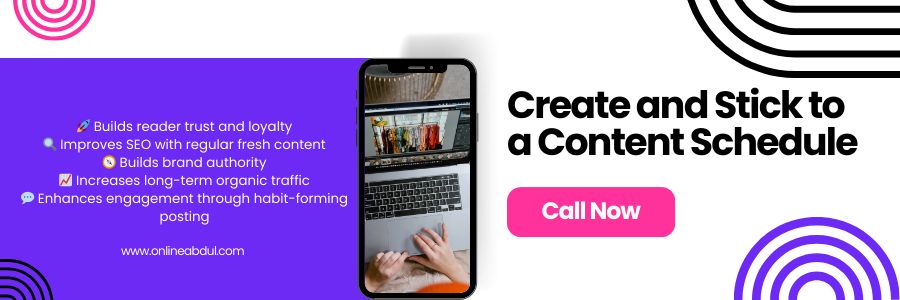
🚫 What is the Mistake?
In the early days, many bloggers posted a few articles and then disappeared for weeks or months. This inconsistency confuses both your readers and Google.
You lose momentum. Your audience forgets you. Your content does not rank.
Without consistency, your blog looks abandoned, and that kills your credibility.
Voice Search Optimized Question:
“Why is it important to blog consistently?”
✅ The Solution: Create and Stick to a Content Schedule
Consistency is key to building trust, traffic, and authority.
That does not mean posting daily. It means setting a realistic schedule and sticking to it.
Start with:
- 🗓 Weekly or bi-weekly blog posts
- 🧠 Evergreen content (stays relevant long-term)
- ✅ Batching posts ahead of time
- 📊 A content calendar to continue organizing
🧠 Pro Tip:
Use free tools like Trello or Google Calendar to map out your monthly blog plan.
💰 Monetization Strategies Enhanced by Consistency
🔹 Increased Traffic = Ad Revenue – Consistent publishing boosts page views and increases ad earnings (e.g., through AdSense or Ezoic).
🔹 Affiliate Trust – Regular posts build credibility, making affiliate links more trustworthy.
🔹 Email List Growth – Your email audience stays warm, and your lead magnets are fed by regular posts.
🔹 Digital Product Sales – A steady earning keeps readers engaged and ready to buy.
🔹 Sponsored Post Opportunities – Brands prefer bloggers with active, updated sites.
🛠️ Top Tools to Stay Consistent
Tool Purpose Free Plan
Trello Organize blog ideas & workflows ✅ Yes
Google Calendar Plan content schedule ✅ Yes
Notion: Manage entire content system ✅ Yes
Airstory Draft and organize blog posts ✅ Limited
Grammarly Edit faster, write consistently ✅ Yes
✅ Benefits of Consistent Blogging
- 🚀 Builds reader trust and loyalty
- 🔍 Improves SEO with regular fresh content
- 🧭 Builds brand authority
- 📈 Increases long-term organic traffic
- 💬 Enhances engagement through habit-forming posting
⚠️ Challenges for Beginners
- Burnout from overcommitting
- Lack of ideas
- Procrastination or perfectionism
- Not planning ahead
✅ How to Overcome This Challenge
- Start small: 1 quality post per week
- Use templates to streamline writing
- Reuse content ideas (e.g., turn blog post → YouTube Short → infographic)
- Schedule your writing time
- Celebrate small wins to stay motivated
✅ Mistake #4: Ignoring On-Page SEO
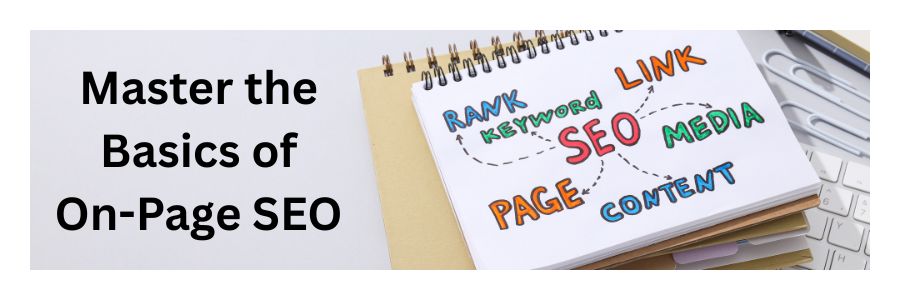
🚫 What is the Mistake?
Many beginner bloggers hit “publish” and hope for the best, without optimizing their posts for search engines.
No meta titles. No headers. No internal links. No image alt text.
That is like building a beautiful store in the desert and not putting it on the map.
If Google cannot read your content, it won’t rank, no matter how helpful it is.
Voice Search Optimized Question:
“What is on-page SEO and why does it matter in blogging?”
✅ The Solution: Master the Basics of On-Page SEO
On-page SEO tells search engines what your content is about, so they can rank it for the queries. It also improves user experience.
Focus on:
- 🎯 Primary keyword in title, H1, intro, meta description, URL
- 🏷️ Use H2s/H3s for subheadings and structure
- 🔗 Add internal links to related blog posts
- 🖼️ Use image alt text with keywords
- 📈 Write meta descriptions that entice clicks
🧠 Pro Tip:
Use free tools like Rank Math or Yoast SEO (for WordPress) to get real-time SEO feedback as you write.
💰 Monetization Strategies Improved by On-Page SEO
✅ Higher Rankings = More Traffic = More Revenue
- More people finding your blog = more ad impressions, affiliate clicks, and sales.
✅ Affiliate Product Posts
- Well-optimized review and comparison posts rank higher and convert better.
✅ SEO-Driven Lead Magnets
- Use optimized landing pages to attract email subscribers you can monetize.
✅ Digital Products & Courses
- Optimize product pages or how-to posts that link to your paid offers.
✅ Sponsored Content Visibility
- Brands love bloggers whose SEO-optimized posts consistently rank.
🛠️ Top Tools for On-Page SEO Optimization
Tool Use Case Free Plan
Yoast SEO (WordPress) On-page SEO analysis ✅ Yes
Rank Math (WordPress) SEO scoring + schema integration ✅ Yes
SurferSEO Keyword density & structure guidance ✅ Limited
SEO Minion (Chrome) On-page element checker ✅ Yes
Grammarly: Improve readability for SEO ✅ Yes
✅ Benefits of On-Page SEO
- 🔍 Helps your content rank for target keywords
- 🚀 Improves user experience and readability
- 📊 Increases click-through rates from Google
- 🧩 Builds a structured, authoritative site
- 💰 Drives long-term passive traffic and income
⚠️ Challenges for Beginners
- Overstuffing keywords
- Skipping meta descriptions
- Not linking internally
- Using poor post structure (walls of text!)
✅ How to Overcome This Challenge
- Use an SEO checklist before publishing
- Keep keyword usage natural, focus on topics, not just terms
- Break content into short paragraphs and use subheadings
- Use free SEO plugins to guide and grade your efforts
- Study top-ranking pages in your niche and model their structure
✅ Mistake #5: Writing for Yourself Instead of Your Audience

🚫 What is the Mistake?
Many new bloggers write what they want to say, not what their audience wants to read.
You might pour your heart into personal stories, vague thoughts, or hobby ramblings, and if they do not solve real problems, readers will not stay.
Remember: Blogging is not a personal diary. It is a value-driven platform.
If your content does not help, entertain, or inform, it would not grow.
Voice Search Optimized Question:
“How do I write blog posts that connect with my audience?”
✅ The Solution: Know Your Reader and Serve Their Needs
Before writing, ask:
🧠 “Who is this for?”
🎯 “What’s their problem, and how can I help?”
Great blog posts are reader-focused, not ego-driven.
Do this:
- Create a reader persona (age, pain points, goals)
- Use keyword research to discover what they search for
- Address their specific problems with actionable tips
- Keep it conversational, as if helping a friend
- Add real examples and solutions (not just opinions)
🧠 Pro Tip:
Use free tools like AnswerThePublic or AlsoAsked.com to discover what your audience asks.
💰 Monetization Strategies Powered by Audience-Centric Writing
🔹 Affiliate Marketing That Converts
– When you solve real problems, readers trust your product suggestions.
🔹 Email List Growth
– High-value posts lead to more sign-ups for your lead magnets.
🔹 Info Product Sales
– Identify audience struggles, then create ebooks/courses that solve them.
🔹 Higher Ad Engagement
– Posts with better user intent = lower bounce rates + more ad impressions.
🔹 More Repeat Visitors
– Helpful, relevant content keeps people back (a monetization multiplier).
🛠️ Top Tools to Understand and Serve Your Audience
Tool Use Case Free Plan
AnswerThePublic Discover audience questions ✅ Yes
Google Trends Spot trending topics in your niche ✅ Yes
Quora / Reddit See what real people are asking ✅ Yes
Ubersuggest Keyword + content ideas with search data ✅ Limited
Typeform Survey your readers ✅ Yes
✅ Benefits of Writing for Your Audience
- 👥 Builds reader trust and loyalty
- 🔁 Encourages shares and repeat traffic
- 💬 Boosts engagement (comments, clicks, replies)
- 🎯 Attracts the right audience who convert
- 💼 Leads to products, services, and sponsorships tailored to their needs
⚠️ Challenges for Beginners
- Being too focused on personal storytelling
- Not validating topic ideas with keyword data
- Writing without structure or purpose
- Ignoring feedback or engagement patterns
✅ How to Overcome This Challenge
- Use tools to research what people want
- Use headline analyzers (like CoSchedule) to craft compelling topics
- End each blog with a clear call-to-action (CTA)
- Invite feedback in comments or email
- Track which posts perform best, and create more of those
✅ Mistake #6: Neglecting Email List Building

🚫 What is the Mistake?
Most beginner bloggers focus only on getting pageviews and forget to capture their visitors.
They assume social media followers or occasional readers are enough. But here is the truth:
If you are not building an email list, you are building someone else’s platform, not your own.
Social media can vanish overnight. Algorithms change. But your email list stays with you.
Voice Search Optimized Question:
“Why is building an email list important for blogging success?”
✅ The Solution: Start Capturing Emails from Day One
Even with just 10 blog visitors per day, you can start growing a loyal audience if you ask for their email.
Offer something valuable (a lead magnet) in exchange for their subscription.
Ways to build your list:
- 🎁 Offer a freebie: checklist, ebook, template, or course
- 📩 Use a simple opt-in form (above the fold, in-post, exit popup)
- 🔄 Add CTAs in your blog posts: “Want more tips like this? Subscribe below.”
- 🛠️ Use tools like MailerLite, ConvertKit, or Systeme.io to automate email collection and follow-up
🧠 Pro Tip:
Segment your list by interest or category so future emails are personalized and relevant.
💰 Monetization Strategies Enhanced by Email Lists
✅ Promote Affiliate Products via Email Sequences
– Recommend tools/products that match each subscriber’s interest.
✅ Launch Digital Products to a Warm Audience
– A list that trusts you = higher conversion rates.
✅ Offer Sponsored Email Slots
– Brands pay to appear in newsletters with engaged readers.
✅ Drive Repeat Blog Traffic & Sales
– Email your latest content, product offers, or services.
✅ Upsell Coaching or Freelance Services
– Use email funnels to educate and convert.
🛠️ Top Tools for Email List Building & Management
Tool Use Case Free Plan
MailerLite Email automation + landing pages ✅ Yes
ConvertKit Creator-friendly email marketing ✅ Yes
Systeme.io All-in-one funnel + email tool ✅ Yes
Sumo Popups & email capture forms ✅ Yes
Thrive Leads Advanced WordPress lead gen plugin ❌ No
✅ Benefits of Building an Email List
- 🔁 Build long-term relationships with your readers
- 📬 Reach your audience directly (no algorithm interference)
- 💡 Test new content and product ideas
- 💰 Generate revenue through automated sequences
- 📈 Increase blog post visibility and engagement
⚠️ Challenges for Beginners
- Not knowing what to offer as a lead magnet
- Fear of email tech or automation tools
- Waiting for more traffic before starting
- Not promoting the opt-in clearly enough
✅ How to Overcome This Challenge
- Create a simple lead magnet that solves 1 small problem
- Use beginner-friendly tools (like Systeme.io or MailerLite)
- Embed forms in high-traffic posts, the about page, and the sidebar
- Offer gated content (free PDF after sign-up)
- Promote the lead magnet in guest posts, social media, and your homepage
✅ Mistake #7: Not Promoting Your Content
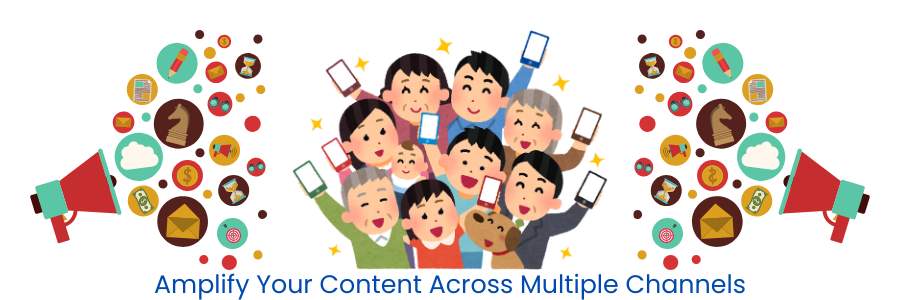
🚫 What is the Mistake?
You wrote a great blog post. Spent hours perfecting it. Hit publish and waited.
But the traffic? Crickets.
That is because content does not promote itself.
If you build it, they will come. It is believed to be one of the biggest blogging mistakes beginners make.
If you do not promote your blog posts. No one will know they exist.
Voice Search Optimized Question:
“How can I promote my blog content effectively?”
✅ The Solution: Amplify Your Content Across Multiple Channels
Creating content is step one. Promotion is step two.
Here is how to boost visibility:
🎯 Use social media Strategically
- Share snippets on Facebook, Instagram, LinkedIn, and Twitter (now X)
- Use relevant hashtags and tag influencers or tools mentioned
📌 Join Niche Communities
- Participate in forums, Facebook groups, and Reddit subreddits
- Add value before dropping your blog links
🔄 Repurpose Content
- Turn your blog post into carousels, reels, videos, and infographics
- Use Canva, Lumen5, or ChatGPT for content repurposing
📧 Leverage Your Email List
- Send blog updates and related content weekly or biweekly
🔗 Use Internal & External Linking
- Link to your own related posts and collaborate with others for backlinks
🧠 Pro Tip:
Create a blog post promotion checklist to follow each time you publish.
💰 Monetization Strategies Powered by Smart Content Promotion
✅ Affiliate Links in Promoted Posts
– More exposure = more affiliate clicks and conversions.
✅ Sponsored Content & Brand Collaborations
– Brands want visibility. You need reach. Promotion shows your influence.
✅ Higher Ad Earnings
– More views → higher impressions → better ad revenue (especially on Mediavine/AdThrive).
✅ Product Launches with Greater Reach
– Repurposing blog content = more eyes on your digital product.
✅ Grow Your Email List Faster
– More content visibility = more lead magnet sign-ups.
🛠️ Top Tools to Promote Your Blog Content
Tool Use Case Free Plan
Buffer Schedule social media posts ✅ Yes
Missinglettr Auto-drip campaign for blog promotion ✅ Yes
Canva Design graphics & infographics ✅ Yes
Tailwind Pinterest + Instagram scheduling ✅ Yes
Quuu Promote blogs via social queues ❌ No
✅ Benefits of Content Promotion
- 🚀 Increases your blog reach and traffic
- 💬 Boosts social shares and brand awareness
- 🧠 Establishes your authority in your niche
- 💼 Attracts opportunities: guest posts, podcast invites, partnerships
- 💸 Multiplies monetization potential with more eyeballs
⚠️ Challenges for Beginners
- Feeling shy about self-promotion
- Not knowing where or how to promote
- Overlooking repurposing opportunities
- Only sharing once (instead of repeatedly)
✅ How to Overcome This Challenge
- Use templates or tools to schedule multiple posts
- Batch content promotion for the week
- Focus on 1–2 platforms where your audience hangs out
- Create engaging headlines and CTAs
- Track what works and double down
✅ Mistake #8: Not Tracking Performance with Analytics

🚫 What is the Mistake?
You are publishing content regularly, but…
Do you know which posts drive the most traffic?
Which keywords are you ranking for?
Which pages convert visitors into subscribers?
If not, you are blogging blindly.
One of the biggest blogging mistakes beginners make is ignoring data.
Without tracking performance, you cannot improve or monetize effectively.
Voice Search Optimized Question:
“Why is tracking blog analytics important for success?”
✅ The Solution: Monitor & Understand Your Blog Data
When you use analytics tools, you will stop guessing and start growing.
Here is what to track:
📊 Traffic Sources
- Where are your readers coming from? (Search, social, referral, direct)
📈 Top-Performing Pages
- Which blog posts bring the most views and engagement?
🔍 User Actions
- What do visitors click on? How long do they stay? Where do they drop off?
💰 Conversion Goals
- Are your CTAs, opt-ins, or affiliate links converting?
🧠 Pro Tip:
Use UTM links to track specific campaigns and CTAs. It is a game-changer for content strategy.
💰 Monetization Strategies Enhanced by Analytics
✅ Double Down on High-Converting Posts
– Promote them more. Add affiliate links. Optimize for search.
✅ Improve Underperforming Pages
– Update headlines, content, SEO, and CTAs based on bounce rate and time-on-page.
✅ A/B Test Opt-In Forms
– Use data to increase lead magnet signups and email list growth.
✅ Boost RPM (Revenue per 1,000 visitors)
– Track what content earns the most via ads or affiliate clicks and replicate.
✅ Segment Readers for Targeted Offers
– Analytics can reveal patterns that guide upsells or content funnels.
🛠️ Top Tools for Blog Analytics & Performance Tracking
Tool Use Case Free Plan
Google Analytics 4 Track visitor actions & traffic ✅ Yes
Google Search Console Monitor search queries & rankings ✅ Yes
Hotjar Heatmaps & session recordings ✅ Yes
MonsterInsights WordPress plugin for GA tracking ✅ Yes
Microsoft Clarity Free performance insights + heatmaps ✅ Yes
✅ Benefits of Tracking Blog Analytics
- 📊 Make data-driven content decisions
- 🔎 Find what works and do more of it
- 🧠 Understand your audience’s interests and intent
- 💸 Maximize your blog’s monetization potential
- 📈 Grow faster by ditching guesswork
⚠️ Challenges for Beginners
- Feeling overwhelmed by analytics dashboards
- Not knowing what metrics matter
- Installing the wrong tracking codes
- Ignoring results due to “low numbers”
✅ How to Overcome This Challenge
- Focus on just 5 key metrics: traffic source, bounce rate, time on page, top posts, conversions
- Use plugins like MonsterInsights to simplify setup
- Set weekly or monthly review goals (start small)
- Learn 1 tool at a time — GA4 or Search Console is a great start
- Watch tutorials on YouTube to build confidence
✅ Mistake #9: Not Creating Evergreen Content

🚫 What’s the Mistake?
You are publishing content, but most of it becomes irrelevant in weeks or months.
It is tied to news, trends, or updates that expire quickly.
That means low long-term traffic and missed ranking opportunities.
One of the common blogging mistakes beginners make is focusing only on trendy topics and ignoring evergreen content, which drives consistent traffic for months or even years.
Voice Search Optimized Question:
“What is evergreen content in blogging and why is it important?”
✅ The Solution: Focus on Timeless, Searchable Topics
Evergreen content solves problems people search for, not just today, but next year too.
📌 Examples of Evergreen Blog Topics:
- “How to Start a Blog for Beginners”
- “Top SEO Tips for Small Business Owners”
- “How to Monetize a Blog Without Ads”
🎯 How to Create Evergreen Content That Ranks:
- Target evergreen keywords with steady search volume
- Use SEO optimization for on-page and long-tail keywords
- Avoid time-sensitive language like “this year” unless necessary
- Update content yearly to stay accurate (but keep the core intact)
🧠 Pro Tip:
Create a 70/30 content split — 70% evergreen, 30% trend-based for balance.
💰 Monetization Strategies Enhanced by Evergreen Content
✅ Affiliate Marketing That Lasts
– Add timeless affiliate links (e.g., hosting, tools, software) to evergreen posts for recurring passive income.
✅ SEO-Driven Digital Product Sales
– Drive consistent organic traffic to product pages, lead magnets, or tripwires.
✅ Higher Ad Revenue Over Time
– Evergreen content builds stable traffic, increasing ad impressions steadily.
✅ Build Authority in a Specific Niche
– Evergreen guides establish trust, which boosts conversions.
✅ Email List Growth on Autopilot
– Evergreen traffic fuels constant opt-ins through embedded CTAs.
🛠️ Top Tools to Create & Maintain Evergreen Blog Content
Tool Use Case Free Plan
Google Trends Identify long-term interest topics ✅ Yes
Ubersuggest Keyword research for evergreen posts ✅ Yes
Grammarly: Improve clarity and grammar in timeless posts. ✅ Yes
Surfer SEO Optimize on-page SEO for evergreen ranking ✅ Yes
AnswerThePublic Find evergreen questions readers ask ✅ Yes
✅ Benefits of Evergreen Blog Content
- 📈 Consistent, compounding traffic
- 🔎 Long-term search engine rankings
- 💰 Sustainable monetization opportunities
- 🧠 Increased Authority and trust
- 🛠️ Less time spent updating old content
⚠️ Challenges for Beginners
- Choosing topics that stay relevant
- Creating content that ages well
- Avoiding seasonal or trend-reliant keywords
- Updating content when needed
✅ How to Overcome This Challenge
- Use keyword tools to identify evergreen terms
- Follow the Problem-Solution format, it always stays relevant
- Review top-ranking posts yearly for updates
- Focus on foundational topics in your niche (blogging, SEO, budgeting, health, etc.)
✅ Mistake #10: Giving Up Too Soon
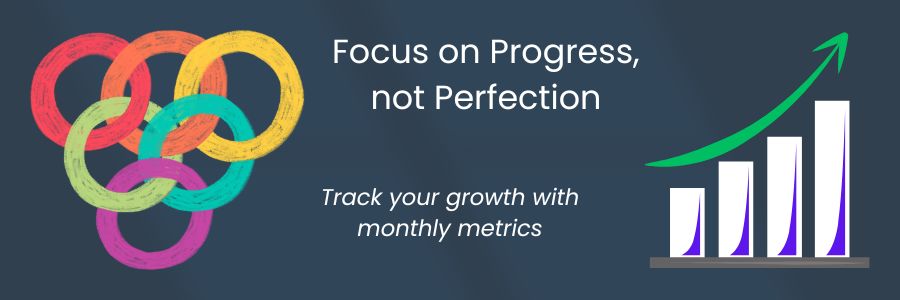
🚫 What’s the Mistake?
You started with high hopes.
Published 5–10 blog posts.
Did not see traffic or income in a few weeks, and then stopped.
Sound familiar?
One of the most heartbreaking blogging mistakes beginners make is expecting instant results. Blogging is not a sprint; it is a marathon. Quitting too soon means you miss all the long-term growth and monetization potential.
Voice Search Optimized Question:
“How long does it take to see results from blogging?”
✅ The Solution: Embrace the Long Game with a Clear Plan
Successful bloggers do not “get lucky.”
They stay consistent, learn, and improve.
Here’s what to focus on:
📆 Have a 6–12 Month Commitment Plan
– Set realistic traffic and income expectations.
🧱 Build a Content Foundation
– Aim for 30–50 well-researched, SEO-optimized posts.
📈 Track Small Wins
– First 100 visitors. First email subscriber. First Google ranking. Celebrate each.
🧠 Learn as You Grow
– Invest in courses, read blogs, and use tools.
💬 Join Communities for Support
– Surround yourself with other beginner-friendly blogging creators.
🧠 Pro Tip:
Every pro blogger once felt like quitting. They succeeded because they did not.
💰 Monetization Strategies That Reward Long-Term Effort
✅ Grow Affiliate Income Over Time
– Older blog posts often rank higher and convert better.
✅ Sell Your Own Products or Services
– Launch digital products once you have traffic and email subscribers.
✅ Get Sponsorships & Brand Deals
– Brands value consistency and trust. It takes time to build both.
✅ Ad Revenue Compounds
– More content = more traffic = more page views = higher RPMs.
✅ Build a Digital Asset That Works While You Sleep
– Your blog becomes a passive income machine once it gains authority.
🛠️ Tools to Stay Committed and Organized
Tool Use Case Free Plan
Trello Organize blog tasks and timelines ✅ Yes
Notion: Create content calendars and track goals. ✅ Yes
Google Calendar Schedule writing, promotion, updates ✅ Yes
Focusmate Stay accountable with co-working sessions ✅ Yes
CoSchedule Headline Analyzer Boost content engagement ✅ Yes
✅ Benefits of Staying Consistent and Not Quitting
- 🧱 Build domain authority and audience trust
- 💰 See compounding returns over time
- 📊 Turn your blog into a monetizable asset
- 🚀 Improve SEO and ranking with every new post
- 🔥 Become a go-to expert in your niche
⚠️ Challenges for Beginners
- Getting discouraged by slow traffic growth
- Comparing yourself to successful bloggers
- Feeling overwhelmed or burned out
- Lacking feedback and community support
✅ How to Overcome This Challenge
- Focus on progress, not perfection
- Track your growth with monthly metrics
- Celebrate every small milestone
- Find accountability buddies or join online blogging groups
- Remember: Your blog is a long-term investment
❓Frequently Asked Questions (FAQ)
1. What are the most common blogging mistakes beginners make?
The common blogging mistakes beginners make are not choosing a niche, skipping keyword research, publishing inconsistently, ignoring on-page SEO, and failing to build an email list. These issues slow growth and reduce visibility.
2. How important is choosing a blogging niche?
Very important. A clear niche helps you attract the right audience, build authority, and stand out in a competitive space. Without a niche, your blog may lack focus and struggle to grow.
3. Why is keyword research essential for beginner bloggers?
Keyword research shows what your audience is searching for. It helps create content people want and improves your chances of ranking higher on search engines.
4. How often should I publish blog posts?
Consistency is key. Whether once a week or bi-weekly, stick to a schedule so readers and search engines can rely on you for regular content.
5. What is on-page SEO, and why does it matter?
On-page SEO involves optimizing your blog content, titles, headers, meta descriptions, and images to help search engines understand and rank your posts. It increases your visibility and traffic.
6. Can I make money from blogging as a beginner?
Yes, but it takes time. You can monetize with affiliate marketing, display ads, sponsored posts, or digital products. Focus first on value, traffic, and trust.
7. Is email marketing still effective for bloggers?
Absolutely. Building an email list allows you to communicate directly with your readers, promote your content, and increase conversions without relying on social media algorithms.
8. Why is promoting blog content important?
Great content won’t perform well if nobody sees it. Promoting your blog through SEO, social media, Pinterest, and communities brings readers to your site and builds engagement.
9. How do I measure blogging success?
Use tools like Google Analytics and Search Console to track traffic, bounce rate, keyword rankings, and engagement. These insights help refine your content and strategies.
10. When should I expect results from blogging?
Blogging is a long-term game. Most blogs take 6–12 months to see meaningful traffic and income. Stay consistent, improve your content, and give it time.
✅ Conclusion: Master Blogging by Avoiding These Beginner Mistakes
Blogging is not just writing. It is strategy, structure, and long-term commitment.
By avoiding the 10 common blogging mistakes beginners make. You are not just saving time. You are building a solid foundation for growth, SEO optimization, monetization, and long-term success.
Let us recap the helpful lessons:
🔑Do keyword research before writing
📅Stick to a publishing schedule
🧠Write for your readers, not yourself
📧Build your email list from Day 1
📣Promote your blog consistently
📊Track everything with analytics
🌱Create evergreen content
💪And most importantly, do not quit too soon
Every successful blogger once started where you are.
Success does not come from doing everything perfectly.
It comes from doing the right things consistently.
✅ Next Steps: Turn Your Blog into a Profitable Online Asset
🚀 Ready to take action? Here’s what to do next:
- ✅ Download the FREE Blogging Mistakes Checklist
- → Grab Your Checklist PDF (Instant download – No fluff)
- 📬 Join the Beginner-Friendly Blogging Tips Newsletter
- → Get weekly tips, tools, and monetization methods straight to your inbox.
- 🛠️ Explore Our Blogging Tools Library
- → The best beginner tools for SEO, content planning, and monetization.
- 📘 Recommended Read:
- → “Top 7 Legit Ways to Make Money Online for Beginners (No Investment Needed)”
💬 Let Us Hear from You!
Which of these mistakes have you made (or avoided)?
Comment below, your insight might help a fellow beginner blogger!
👥 Share this post with someone starting a blog, help them skip the hard lessons.
🔗 Pin it. Tweet it. Save it. Your blog community will thank you.